In advance of the Mittal Institute’s major New Delhi conference last month, “India 2047: Building a Climate-Resilient Future,” a group of nearly two dozen Harvard faculty, affiliates, and climate philanthropists spent two days on an extreme heat immersion trip in the city of Ahmedabad, India. The two days provided unique opportunities to dive more deeply into heat adaptation policies and practices in India, both centuries-old and modern.
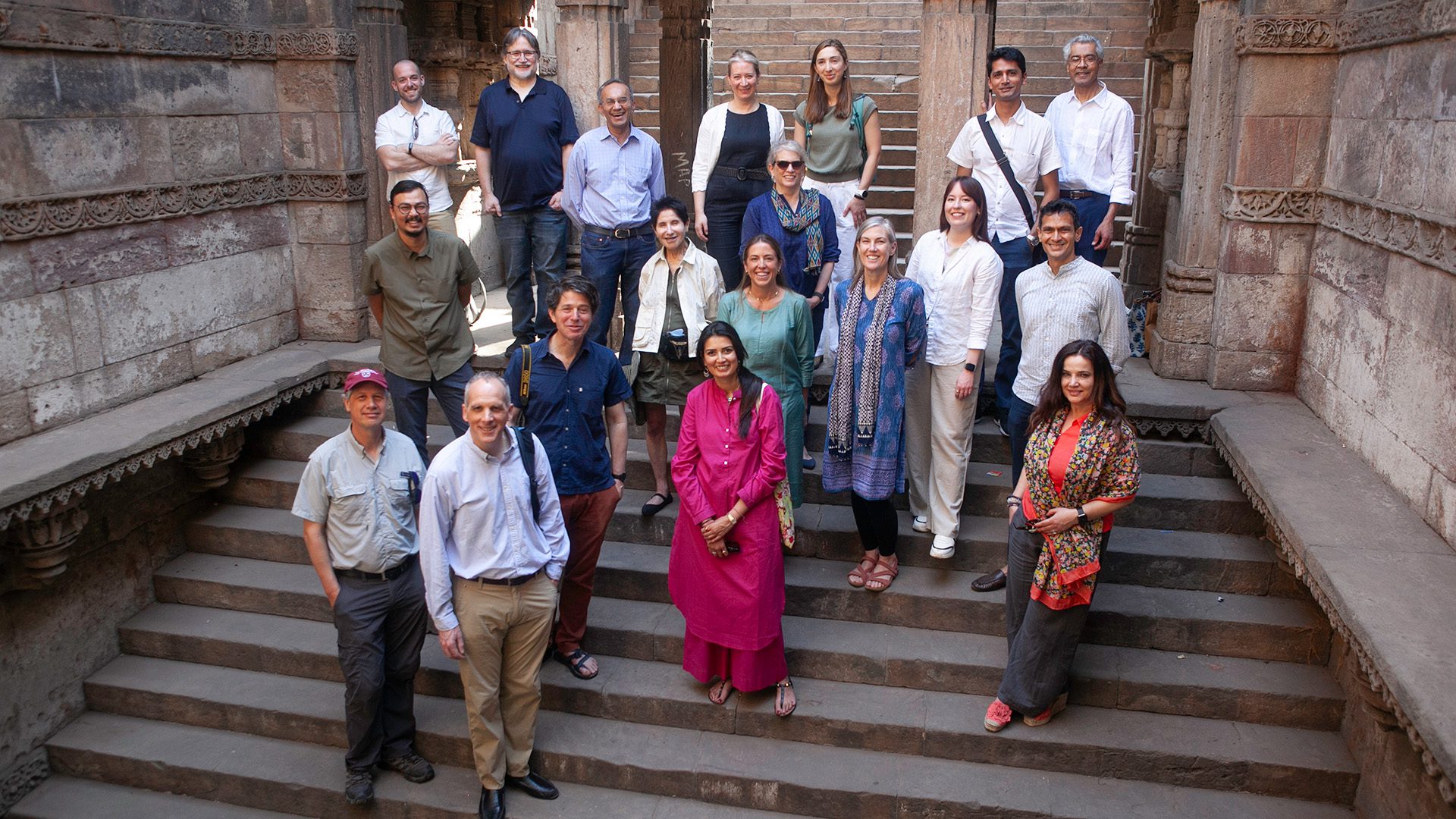
Harvard faculty and affiliates visit the Dada Hari stepwell in Ahmedabad, India. Photo credit: David Trilling | The Salata Institute
The trip aimed to provide faculty with more on-the-ground insights on climate change in India before the intensive days of workshops and discussions in New Delhi. Prof. James Salzman, who was on the trip, wrote in a blog on Legal Planet that while the conference itself was fascinating, the two days before in Ahmedabad were “even more fascinating and personally meaningful.” He added, “Discussing climate change at a large workshop can provide important policy insights and opportunities for networking, but it necessarily lacks the human element. Discussions and presentations in a conference center cannot adequately capture what people are doing on the ground.”
The first day started with a sunrise visit to one of Ahmedabad’s famous stepwells to see what insights ancient architecture can provide about tackling modern climate challenges. The visit was led by photographer and author Claudio Cambon, who has spent nearly five years photographing stepwells across India, culminating in his second book: “To Reach the Source: The Stepwells of India.”
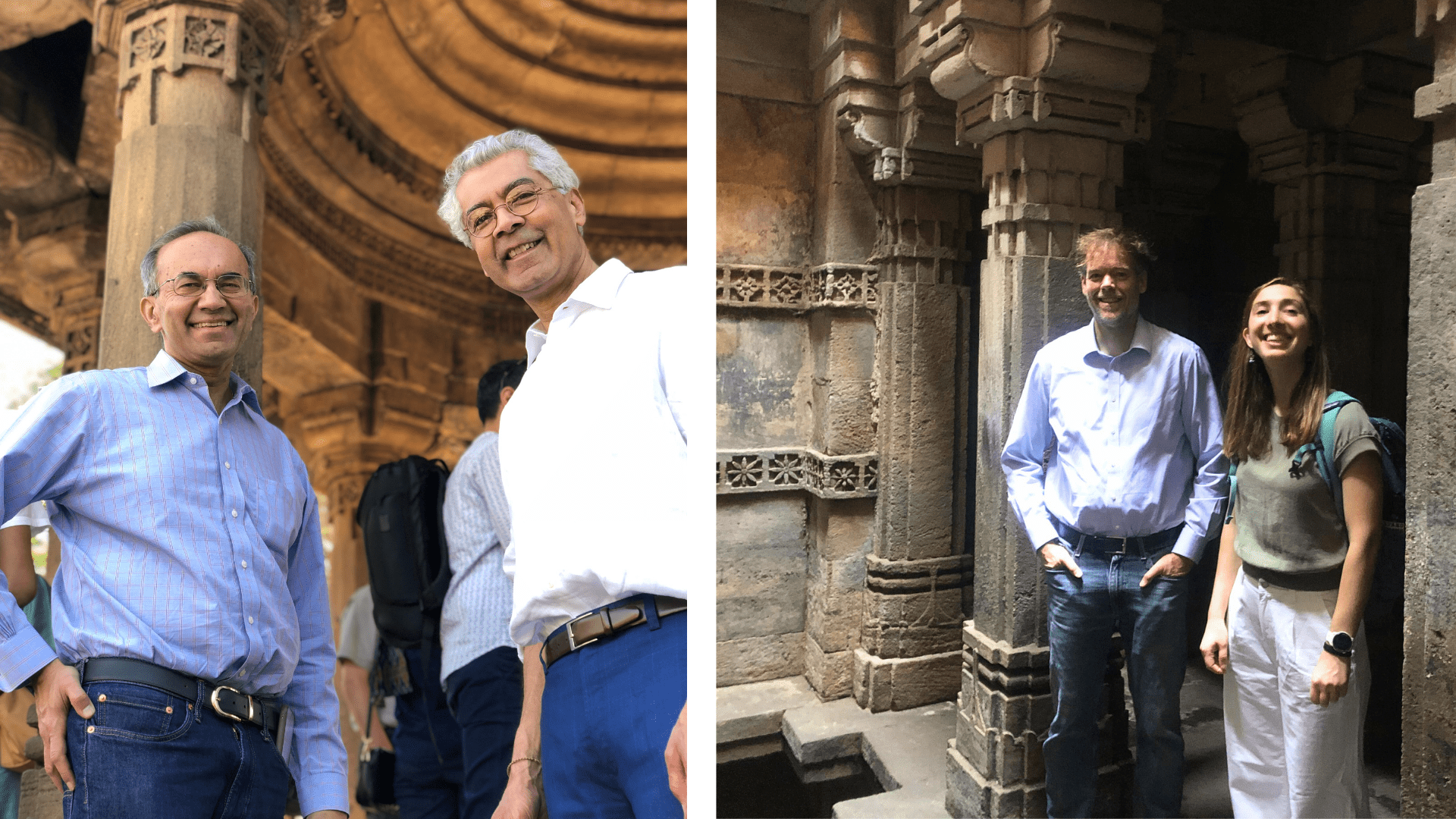
(l) Prof. Tarun Khanna, Mittal Institute Faculty Director, and Hitesh Hathi, Mittal Institute Executive Director and (r) Prof. Peter Huybers and Klara Kuemmerle, Ph.D student in the Department of Earth and Planetary Science at a visit to a stepwell in Ahmedabad, India.
The group then headed to meet with small business owners – from broom makers to street vendors to cobblers – to hear firsthand about the physical, financial, and mental impacts of extreme heat. The meeting was hosted by the All India Disaster Mitigation Institute (AIDMI), which is working towards bridging the gap between policy, practice and research related to humanitarian action and disaster risk. The group heard how small micro-loans are helping the workers with small interventions, such as umbrellas to shade from the sun and heat.
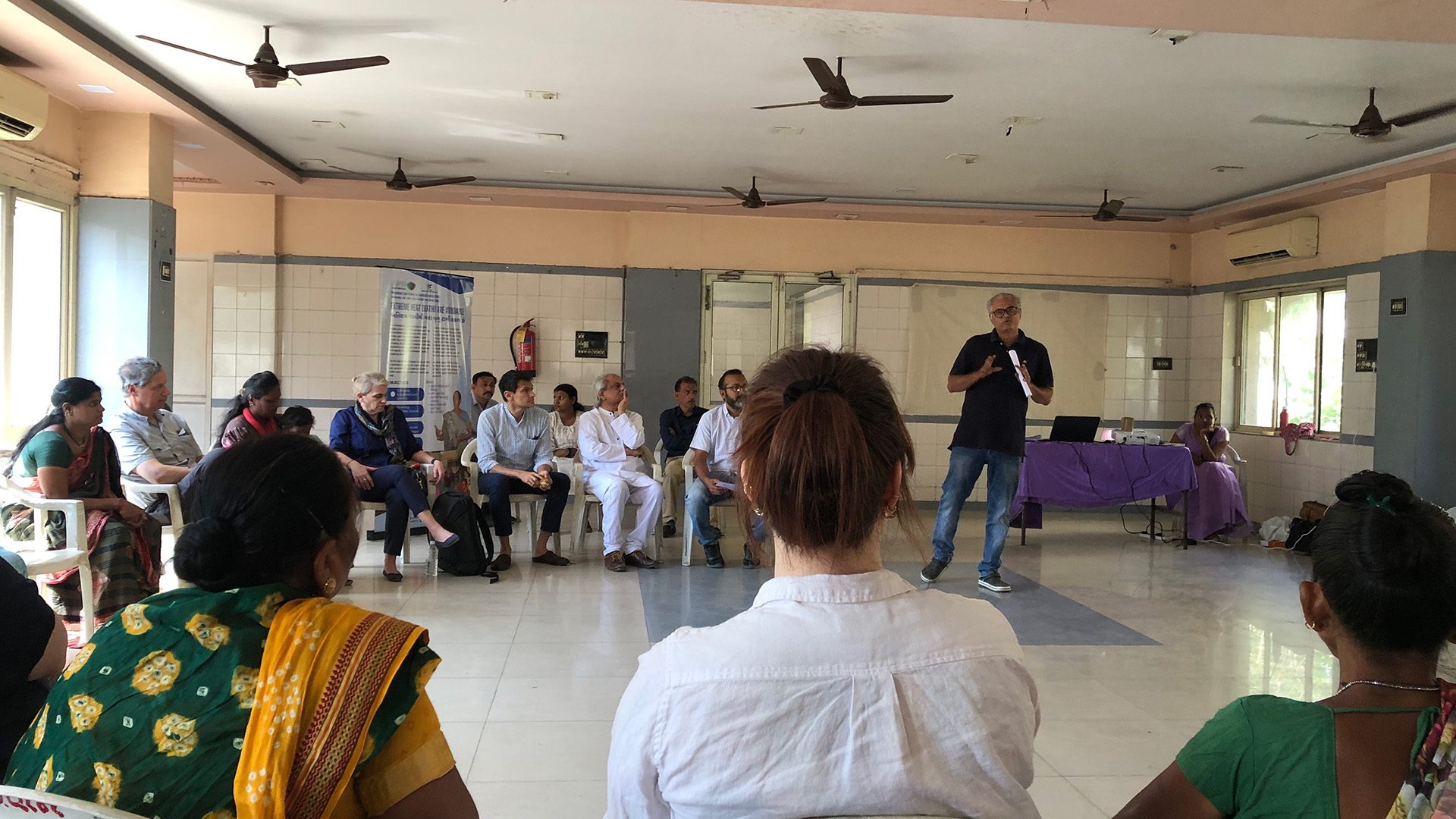
A visit hosted by All India Disaster Mitigation Institute provided an opportunity to hear from informal workers about their experiences with extreme heat.
The city of Ahmedabad was the first in South Asia to create a Heat Action Plan (HAP) in 2013, and the group had the opportunity to visit CEPT University to learn more about the HAP from Prof. Dileep Mavalankar and how a lab at the university is studying the impacts of heat. The Center for Advanced Research in Building Science and Energy (CARBSE) at CEPT Research and Development Foundation (CRDF), led by Prof. Rajan Rawal, aims to provide an impetus to research and development in the area of energy and habitat. Participants listened to presentations from Prof. Mavalankar and Prof. Rawal before visiting the heat lab.
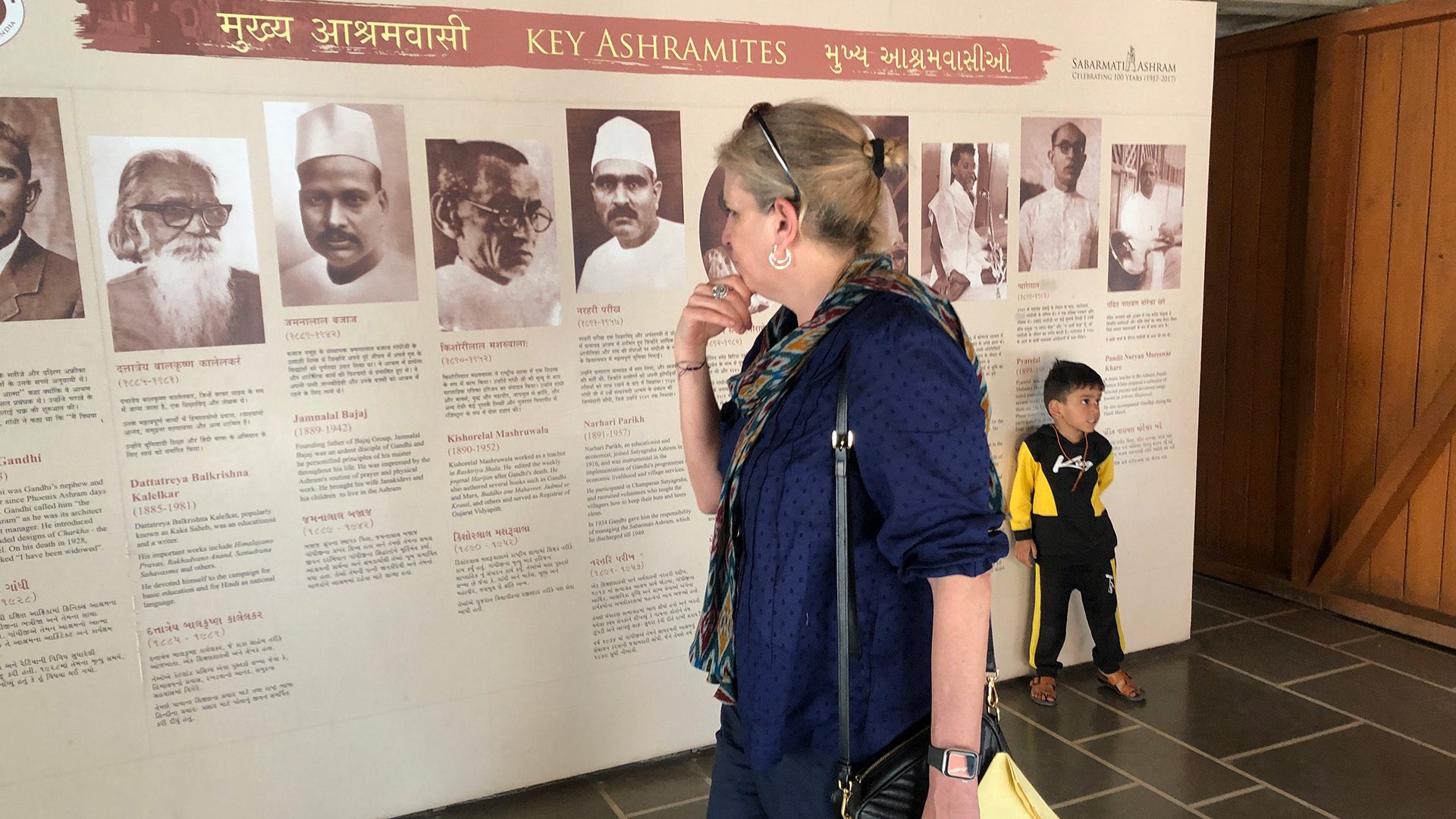
Prof. Sharon Block at the Mahatma Gandhi Sabarmati Ashram in Ahmedabad, once the home of Mahatma Gandhi and now a museum.
On the second day, the group visited the Self Employed Women’s Organization (SEWA), a 3.2-million strong trade union of informal workers in India. SEWA facilitated visits to the homes and work sites of informal women workers, some of whom are part of a study led by Harvard professors Satchit Balsari and Caroline Buckee. The heat-focused study, called Community HATS, follows hundreds of working women in the informal economy across various indoor and outdoor settings, measuring heat and humidity 24/7 across all seasons to better understand how extreme heat is truly experienced on the ground. The day started with an overview of the study, as well as the pioneering work of partner organization SEWA, and then the group visited both rural and urban homes and work sites.
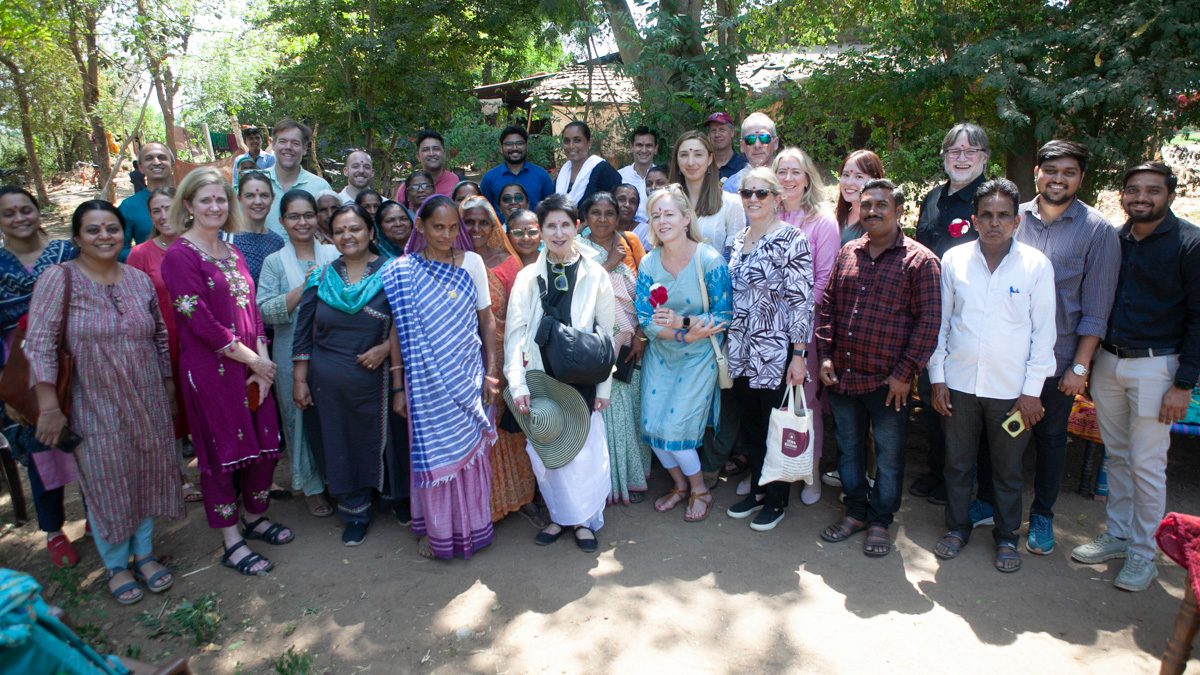
Harvard faculty and affiliates spent the day with SEWA to learn how rural communities are being impacted by heat. Photo by David Trilling | The Salata Institute
